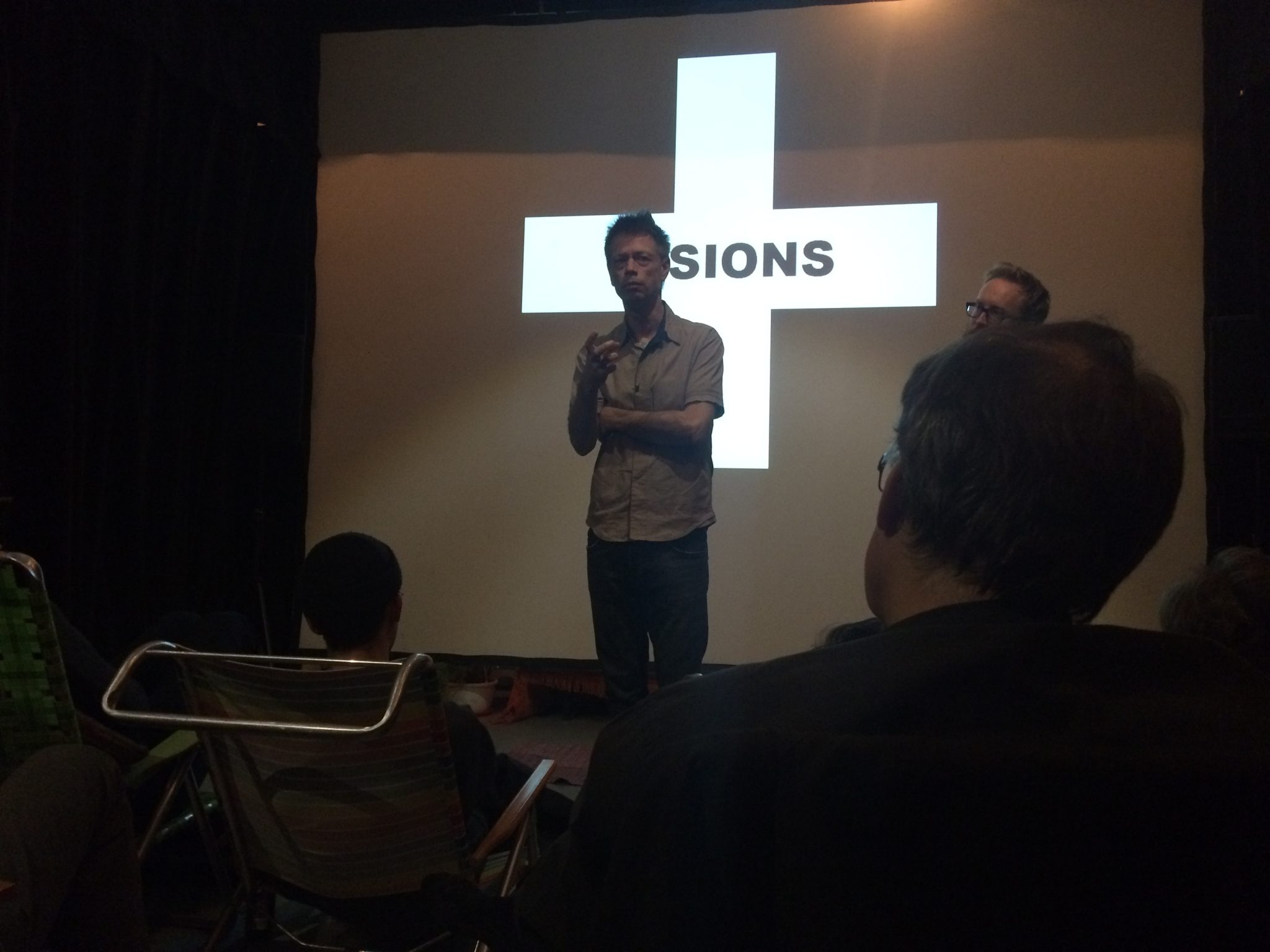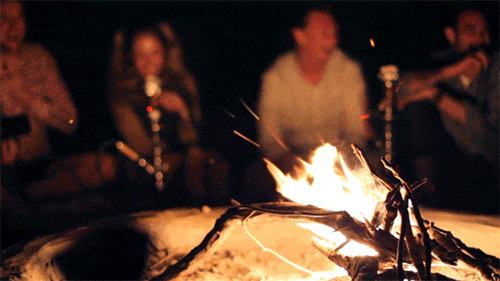Ventriloquisms: shorts by Mike Hoolboom
January 10, 2018
Visions, Montreal
Intro
It’s very rare, it hardly ever happens, but sometimes I’m asked to teach a class, even a seminar or a workshop. There’s this thing I like to do on the first day. I ask if you could find someone in the room you don’t know or the person you know the least, and go and sit with them. You’re going to represent that person to the class. So for five minutes, you’re going to ask them questions while they talk the talk. When five minutes are up they’re going to ask you questions, and you’re going to say a few things about yourself. And then we’ll come back together as a group, and one by one, each person in the room will deliver a portrait of the person they’ve been speaking to.
Sometimes we make pictures with our phones, sometimes with our bodies, most often with our words. I’m inviting each person in the class to make a picture with their words. I’m extending the unwanted invitation to each person in the class to feel what it means to be a subject, to be subject to, to be represented. To be made to sit while someone else puts your words into their mouth.
It’s a personalized form of democracy: will you represent me to the others? The feelings of shame and fear which are at the very heart of the project of representation, are very important, are very important to feel in the body, not as an idea or a theory, but to experience here in this room as we sit together. Because so often, as I don’t need to tell you, the reason why people pick up their phones, or their cameras, is so we don’t have to feel fear and shame, in fact the whole point is that we don’t have to feel anything.
(gesture thumbing through phone) I used to have feelings, now I just have infinite choices. And I love each and every one of them, equally.
As each portrait arrives out of the sentences of our comrades it becomes very clear that every portrait is different, not simply because they’re describing different people, but because of the nature of the portrait itself, the nature of the frame. In fact there are two portraits being made, there is the ostensible subject, there’s you, and then there is the one who is speaking, or the one who is holding the camera, the one who is carrying the frame. In other words, an image is always made in stereo, it arrives from two sides, and this small exercise is an invitation to notice the way that our own frames operate to produce pictures.
Here’s another way of thinking about this exercise – as a process of translation. As someone who doesn’t know how to speak French in a French-speaking province, the question of translation is a shadow I carry from room to room. I used to think of listening as a sponge-like activity, as a question of absorption. I’m a blank slate – write me. But now I see listening as a process of translation. I’m going to recreate the words that you tell me, and that recreation, that translation, is going to invent something that doesn’t belong to me and it doesn’t belong to you. What I’m going to invent is us, or: the possibility of a relationship.
Last paragraph.
What I’ve tried to do in the movies we’re going to see, and sometimes horribly failed to do, is to invent this space of us, even when ‘the other’ is a slice of found footage, or a cartoon or a late night conversation. I hope you enjoy these translations, but most of all, I hope you’re able to make translations of your own. Bonne chance.

